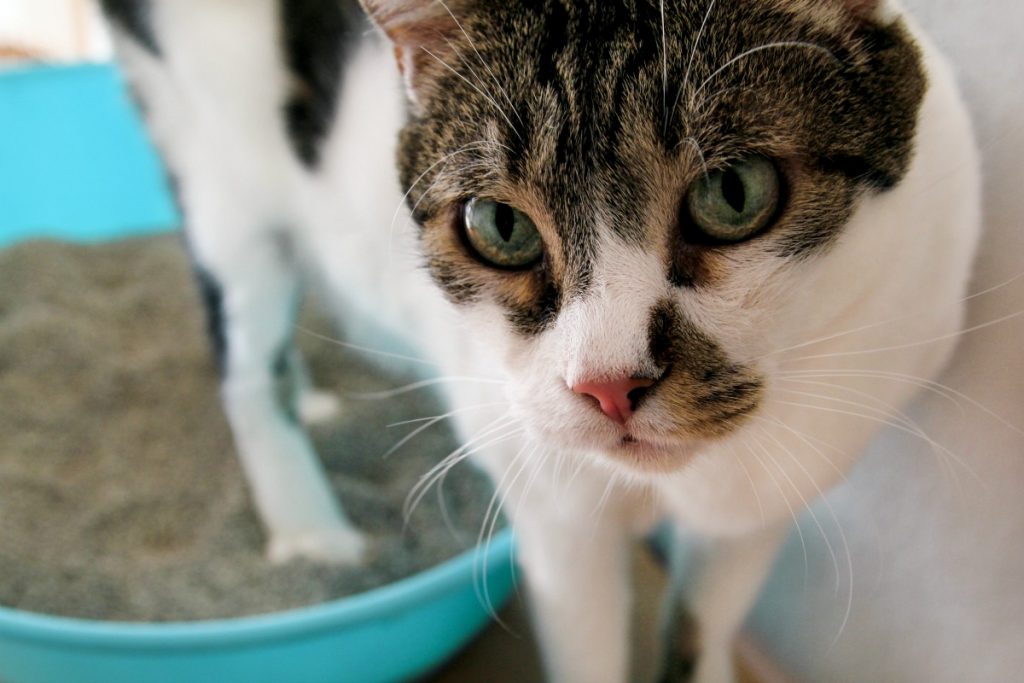Inappropriate elimination in cats is one of the most common reasons reported for feline relinquishment to animal shelters, and the most common feline behaviour problem veterinarians are faced with. There are many causes for inappropriate urination in cats, which can also be multifactorial, and identifying the cause(s) for this behaviour is important to limit relinquishment and euthanasia due to this very frustrating concern.
There are many medical causes of inappropriate feline urination in cats, such as urinary tract infections, urinary calculi, chronic kidney disease, arthritis, and diabetes mellitus, among others. All of these should be ruled out prior to making a behavioural diagnosis with diagnostics such as physical exam, urinalysis, and blood work
Cats are extremely susceptible to even the smallest stressors causing behaviour problems. Things like a change in owner schedule, introductions of new pets, and even a new neighbourhood outdoor cat that likes to flaunt its freedom are all factors that can affect a cat’s elimination habits.
If your kitty is eliminating outside of the box, consider visiting your veterinarian for full medical workup and behavioural consultation. In the meantime, the following tips for creating the optimal litter box may help to get your cat back in the box:
- Litter box number and size: the rule of thumb for litter box numbers is to have at least one more litter box than the number of cats. The bigger, the better when it comes to litter box size and low-profile boxes may be more appropriate for arthritic cats who have a hard time stepping over the lip.
- Location: Multi-level homes should have a litter box on each level, and litter boxes should not be in the same area as food and water. Avoid placing litter boxes close to areas where your dog or other cats sleep in order to avoid possible conflict.
- Covering: open boxes are recommended in order to facilitate owner monitoring and encourage more timely cleaning of boxes. As well, covered boxed can traps scents from elimination that may make cats unwilling to use that box
- Cleaning: make sure you clean out your cat’s box at least once per day and add litter as appropriate. Thoroughly clean out and washing of the box with soap and water (no harsh chemicals please!), as well as fully replacing the litter every 1-2 weeks is a good idea
- Litter: cats can be picky about litter scent, depth, and texture. Try t avoid picking whatever litter is on sale, and instead stick to a litter that your cat is known to like, or preference test different litters in different boxes to find one that your cat likes. Many cats are not a fan of scented litter, and a lot of litter marketing claims are made for people and not the cat
Written by: Dr. Justine Antunes, Veterinarian




